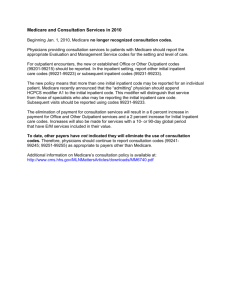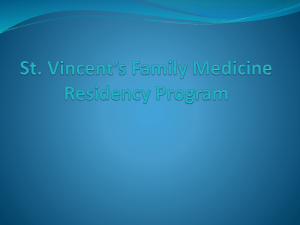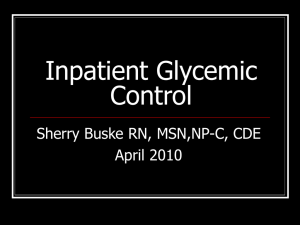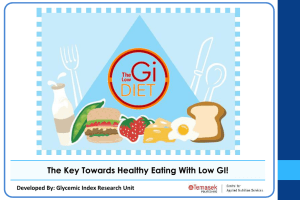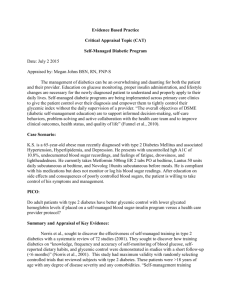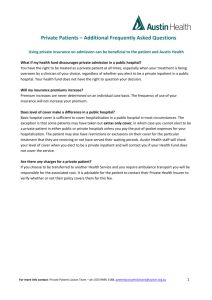Evaluating Perceptions of and Barriers to Successful Inpatient
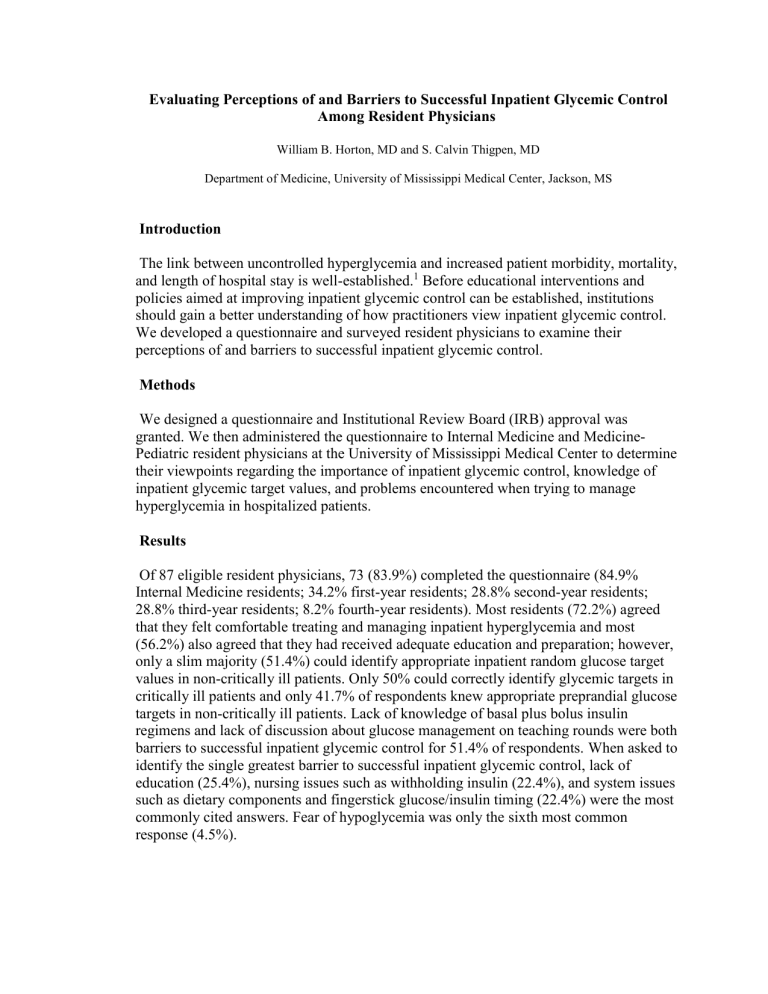
Evaluating Perceptions of and Barriers to Successful Inpatient Glycemic Control
Among Resident Physicians
William B. Horton, MD and S. Calvin Thigpen, MD
Department of Medicine, University of Mississippi Medical Center, Jackson, MS
Introduction
The link between uncontrolled hyperglycemia and increased patient morbidity, mortality, and length of hospital stay is well-established.
1
Before educational interventions and policies aimed at improving inpatient glycemic control can be established, institutions should gain a better understanding of how practitioners view inpatient glycemic control.
We developed a questionnaire and surveyed resident physicians to examine their perceptions of and barriers to successful inpatient glycemic control.
Methods
We designed a questionnaire and Institutional Review Board (IRB) approval was granted. We then administered the questionnaire to Internal Medicine and Medicine-
Pediatric resident physicians at the University of Mississippi Medical Center to determine their viewpoints regarding the importance of inpatient glycemic control, knowledge of inpatient glycemic target values, and problems encountered when trying to manage hyperglycemia in hospitalized patients.
Results
Of 87 eligible resident physicians, 73 (83.9%) completed the questionnaire (84.9%
Internal Medicine residents; 34.2% first-year residents; 28.8% second-year residents;
28.8% third-year residents; 8.2% fourth-year residents). Most residents (72.2%) agreed that they felt comfortable treating and managing inpatient hyperglycemia and most
(56.2%) also agreed that they had received adequate education and preparation; however, only a slim majority (51.4%) could identify appropriate inpatient random glucose target values in non-critically ill patients. Only 50% could correctly identify glycemic targets in critically ill patients and only 41.7% of respondents knew appropriate preprandial glucose targets in non-critically ill patients. Lack of knowledge of basal plus bolus insulin regimens and lack of discussion about glucose management on teaching rounds were both barriers to successful inpatient glycemic control for 51.4% of respondents. When asked to identify the single greatest barrier to successful inpatient glycemic control, lack of education (25.4%), nursing issues such as withholding insulin (22.4%), and system issues such as dietary components and fingerstick glucose/insulin timing (22.4%) were the most commonly cited answers. Fear of hypoglycemia was only the sixth most common response (4.5%).
Discussion
Most residents reported feeling comfortable managing inpatient hyperglycemia but had trouble identifying appropriate inpatient glycemic targets from the most recent consensus guidelines.
1
Lack of education and nursing/system issues were the most commonly cited barriers to ideal inpatient glycemic management. Limitations of this study include the wording of the questions and Likert scale answers both being subject to interpretation of the respondent and respondents being from one academic medical center. Future interventions should focus on resident education along with improving system environments to aid in successful inpatient glycemic control.
References
1. Moghissi ES, Korytkowski MT, DiNardo M, et al. American Association of Clinical
Endocrinologists and American Diabetes Association consensus statement on inpatient glycemic control. Endocr Pract . 2009; 15(4): 353-369.

